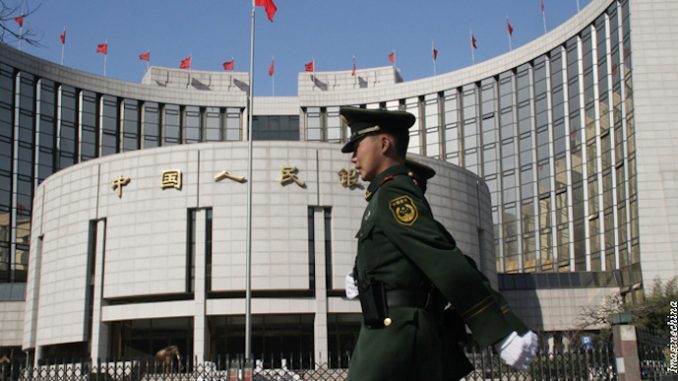China : situation about crypto in 2022

Because of its low electricity prices and lower computer hardware, China has long been a major centre for cryptocurrency mining operations. It is so popular that many gamers blame the industry for a shortage of graphics card, which miners use to mine crypto-currencies.
Although China has banned cryptocurrency exchanges in its domestic territory, trade continued by other means. China attempted to ban cryptocurrency in its domestic market only in 2021.
Cost-Effective Agency
KPI and Results focused. We are the most visible Marketing Agency for China. Not because of huge spending but because of our SMART Strategies. Let us help you with: E-Commerce, Search Engine Optimization, Advertising, Weibo, WeChat, WeChat Store & PR.
China’s decision to ban crypto in 2017 made headlines, but that is just one of many countries and jurisdictions who have either severely restricted or banned it in the past few years.
All countries that have banned cryptocurrency include Egypt, Oman (Qatar), Oman, Qatar, Oman and Morocco. According to , a 2021 summary report published by the Law Library of Congress, 42 other countries have also implicitly banned cryptocurrency. These include Algeria, Bahrain and Bangladesh as well as Bolivia.

No More Marketing on Crypto is Allowed in China
On Dec. 31,2022 the Chinese government published a draft regulation that stated that no individual or organization is permitted to use internet marketing for illegal financial transactions, including cryptocurrency transactions.
Quick facts
The regulation was drafted by the People’s Bank of China, China’s central bank, and other Chinese government institutions. It states that no individual or organization is allowed to offer internet marketing services for illegal financial transactions, including virtual currency transactions. Public opinion is allowed until January 31.
Since May 2021’s crackdown on cryptocurrency mining, the Chinese government has taken a tough stance against cryptocurrencies. China declared all cryptocurrency transactions unlawful on Sept. 24. A case in Beijing last Dec., which was about a dispute over Bitcoin mining equipment and involved a Bitcoin mining contract, the local court ruled that it was “void.”
In recent months, China has seen multiple internet marketing scams that involve cryptocurrencies. A cross-border scam that involved cryptocurrencies was reported in Sichuan on December 24th. It claimed more than 500 victims. The scammers were based in the Philippines and Cambodia. They enticed Chinese citizens to invest in cryptocurrencies. After more than a decade of investigations and trials, 590 individuals involved in this case were convicted and sentenced.
China crackdowns crypto in 2021
Chinese financial regulators released a statement in May this year reminding consumers about the dangers of virtual currencies and warning them that they will not be able to continue trading Bitcoin or other currencies online.
Chinese state institutions also banned payment companies and banks from dealing with crypto-related business in June. This ban is similar to the ones they had previously introduced in 2013/2017. The main administrative cabinet of the government vowed to crack down on Bitcoin mining and trading, prompting local authorities to close down crypto-mining operations in the country.
China’s top regulators issued a nationwide ban against cryptocurrency in September. All financial transactions that involve cryptocurrencies were considered illegal. The government issued a statement stating that anyone involved in illegal financial activities would be charged. After this development, the price of Bitcoin fell by more than $2000.
What was the purpose of the clampdown?
For a time, the Chinese government saw cryptocurrencies as a problem in its control of capital flows.
The government of the country has claimed that they will punish illegal crypto-mining activities to protect themselves from the dangers of a decentralised, unregulated industry whose growth is disorderly and blind.
China claims that regulation of cryptocurrency is a way to reduce carbon emissions. One common criticism of Bitcoin is the fact that they require a lot energy in order to mine them. The process of creating Bitcoin to spend or trade uses up an astonishing amount of electricity–annually consuming more electricity than the country Finland, a nation made up of 5.5 million people.
China has been also testing its own digital currency. The e-yuan is faster than traditional online payment methods and more efficient than Bitcoin, which requires huge computing power. This would make it easier for government to gather data and monitor citizens’ transactions, as well as to control access to their funds. It is possible that making cryptocurrency illegal would also be part of a larger effort to divert citizens away from the popular private financial service providers, such as AliPay or WeChat.
Bitcoin mining has totally recovered from the Chinese crypto crackdown that took more than half the world’s miners offline virtually overnight earlier this year. source
The bright side to the ban
Chief executive of FTX, Sam Bankman-Fried (one of the biggest cryptocurrency exchanges), believes that North American crypto mining could be given a huge opportunity by China’s bans. Bitcoin mining will not cease but operators may relocate to Texas, which has a low regulatory environment and cheap electricity.
Cryptocurrency regulation has become a worldwide problem
Governments around the world are facing a problem with the race keeping up with developments in the $2 Trillion cryptocurrency market. There are legitimate concerns that cryptocurrency could pose a threat to the financial system. Regulations of cryptocurrency vary from one country to another. Although the future of global banking and commerce is uncertain, it’s clear that cryptocurrencies are gaining popularity.
Chinese Crypto Investors
China’s cryptocurrency investors remain faithful despite the fact that exchanges Binance & Huobi cut ties with mainland users
Chinese crypto investors claim they will continue to trade their virtual coins overseas as large exchanges cease yuan support
Beijing declared this year that any overseas platform serving users on the mainland is illegal. This was in response to a massive crackdown on bitcoin mining.
Chinese investors in bitcoin and other cryptocurrency are looking for ways to circumvent restrictions that effectively outlaw their preferred assets, even after Binance, Huobi and other major crypto trading platforms have pledged to purge users from the mainland.
These announcements are coming at the end a difficult year for Chinese crypto traders. They have had their online communities closed down and pricing websites shut down. Major exchanges have also been cutting off services. After Beijing declared this year that all off-shore crypto platforms serving mainland clients were illegal, exchanges have taken harsher measures.
Binance and Huobi said that they would stop transactions in Chinese Yuan by December 31st. Huobi already stopped new registrations from China using phone numbers from mainland China. It also stated that it would begin charging a 0.2% monthly fee for accounts in China with balances next year. Binance stated that withdrawals will not be possible for Chinese users starting in January.
Even OTC trading in yuan in these platforms was ended by the pull-out. This removed a major trading option for domestic investors, who had lost their main trading channel to foreign exchanges in 2017. Before now, users could purchase cryptocurrency with yuan via banks and other commonly-used online payment channels. Eight other platforms announced that they would no longer accept yuan purchases starting next month.
According to investors who spoke to the South China Morning Post under anonymity, some crypto holders plan to continue to hold onto their assets despite regulatory hostilities and legal risks.
Common ways to trade include using virtual private networks (VPN), creating foreign email addresses and shifting assets to smaller exchanges.
Read more






When open sir china crypto exchanges please tell me.
It is not open, but Chinese do it … email us for more information.
China is constantly trying to block everything that is possible. I’m wondering if they can block exchangers like Crypton